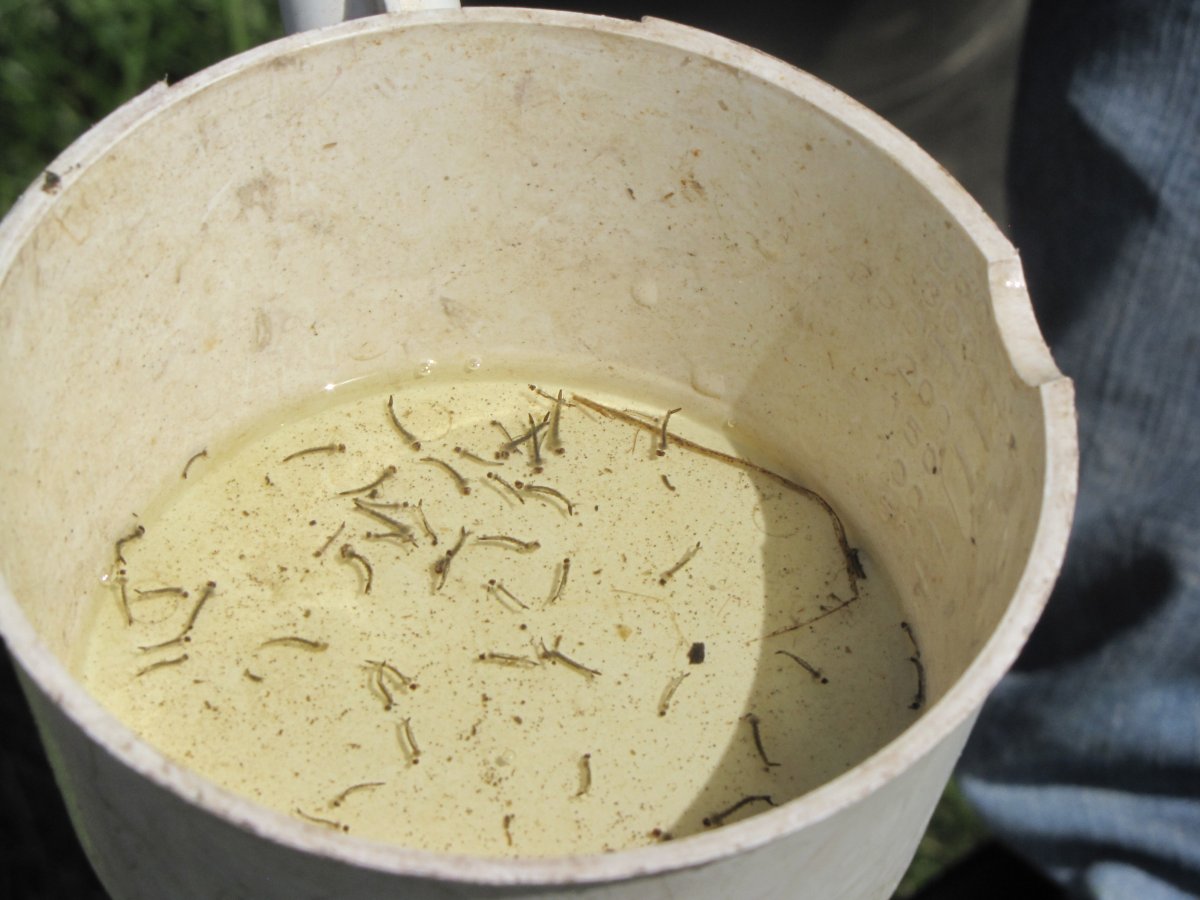It’s easy for people to disrupt potential mosquito breeding sites around their properties according to the Regional District of Central Okanagan (RDCO).

That is why it’s encouraging residents to join the fight against the bite by removing potential places for mosquitoes to hang out around their properties.
RDCO crews have been monitoring and treating mosquito larvae in known breeding spots throughout the region since mid-March. The RDCO is asking residents to do their part as well.
“Start by removing any standing water sources and unused items that collect water such as old tires,” said RDCO communications officer, Bruce Smith in a news release.
“It doesn’t take much water to provide the right environment for mosquitoes. Rain barrels should be covered with a screen to prevent mosquitoes from laying their eggs in water.”
Smith also suggests residents drain standing water from containers under plant pots or in garbage cans.

Get daily National news
“Change the water in birdbaths, wading pools and pet bowls at least twice a week. And remove any water that gathers in unused swimming pools and on swimming pool covers and aerate water in ponds or add fish that will feed on mosquito larvae,” said Smith.
Because of the record-breaking heat and dry conditions in the valley this spring, larval mosquito development has started early this year, according to Curtis Fediuk, president of D.G. Regan and Associated Ltd., the company contracted by the RDCO to do the larval mosquito control in the area.
Fediuk says the product they use to control larval mosquitoes “has no effect on non-target organisms including other insects, fish, birds, amphibians, reptiles and mammals.”
The RDCO is reminding residents that despite the work done by the contractor, the local mosquito population won’t be eliminated.
“Residents can contribute to their control program by reducing or eliminating standing water on their properties, installing bird or bat houses and they can protect themselves from annoyance by using approved repellants, window screens, wearing loose fitting light coloured clothing and by minimizing activities near treed and bush areas at dusk and dawn where adult mosquitoes prefer to rest,” said Smith.
According to Smith, the monitoring and treatment is being done in close to 200 known surface water habitats and more than 9,000 roadside catch basins.
Click here to learn more or to report mosquito concerns to the RDCO.









Comments